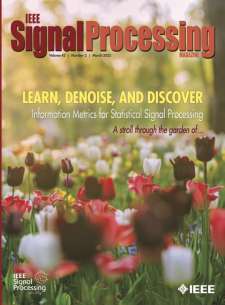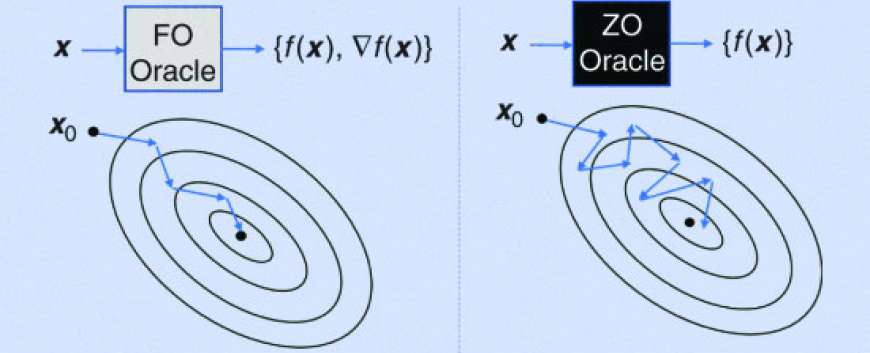A Primer on Zeroth-Order Optimization in Signal Processing and Machine Learning: Principals, Recent Advances, and Applications
Top Reasons to Join SPS Today!
1. IEEE Signal Processing Magazine
2. Signal Processing Digital Library*
3. Inside Signal Processing Newsletter
4. SPS Resource Center
5. Career advancement & recognition
6. Discounts on conferences and publications
7. Professional networking
8. Communities for students, young professionals, and women
9. Volunteer opportunities
10. Coming soon! PDH/CEU credits
Click here to learn more.
A Primer on Zeroth-Order Optimization in Signal Processing and Machine Learning: Principals, Recent Advances, and Applications
Zeroth-order (ZO) optimization is a subset of gradient-free optimization that emerges in many signal processing and machine learning (ML) applications. It is used for solving optimization problems similarly to gradient-based methods. However, it does not require the gradient, using only function evaluations. Specifically, ZO optimization iteratively performs three major steps: gradient estimation, descent direction computation, and the solution update. In this article, we provide a comprehensive review of ZO optimization, with an emphasis on showing the underlying intuition, optimization principles, and recent advances in convergence analysis. Moreover, we demonstrate promising applications of ZO optimization, such as evaluating robustness and generating explanations from black-box deep learning (DL) models and efficient online sensor management.
Zeroth-order (ZO) optimization is a subset of gradient-free optimization that emerges in many signal processing and machine learning (ML) applications. It is used for solving optimization problems similarly to gradient-based methods. However, it does not require the gradient, using only function evaluations. Specifically, ZO optimization iteratively performs three major steps: gradient estimation, descent direction computation, and the solution update. In this article, we provide a comprehensive review of ZO optimization, with an emphasis on showing the underlying intuition, optimization principles, and recent advances in convergence analysis. Moreover, we demonstrate promising applications of ZO optimization, such as evaluating robustness and generating explanations from black-box deep learning (DL) models and efficient online sensor management.
Many signal processing, ML, and DL applications involve tackling complex optimization problems that are difficult to solve analytically. Often, the objective function itself may not be in an analytical closed form, permitting function evaluations but not gradient assessments. Optimization corresponding to these types of problems falls into the category of ZO optimization with respect to black-box models, where explicit expressions of the gradients are difficult to compute or infeasible to obtain. ZO optimization methods are gradient-free counterparts of first-order (FO) optimization methods.
SPS Social Media
- IEEE SPS Facebook Page https://www.facebook.com/ieeeSPS
- IEEE SPS X Page https://x.com/IEEEsps
- IEEE SPS Instagram Page https://www.instagram.com/ieeesps/?hl=en
- IEEE SPS LinkedIn Page https://www.linkedin.com/company/ieeesps/
- IEEE SPS YouTube Channel https://www.youtube.com/ieeeSPS














